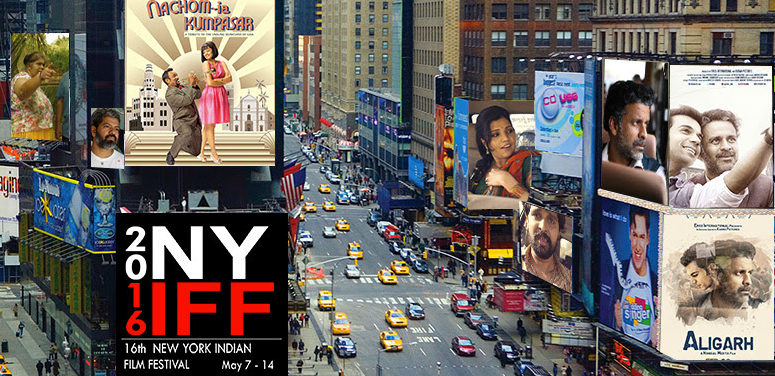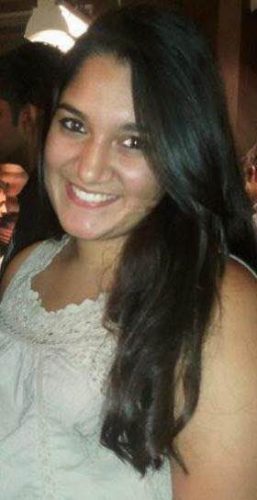
The 16th annual New York Indian Film Festival (NYIFF) opened last weekend, featuring narrative, documentary and short films from South Asian filmmakers and actors across the world. On Monday night, the festival tackled the themes of love and laughter through 12 short films that spanned the topics of sperm donors, zodiac signs, and everything in between. While the two-and-a-half hour running time that crept into Tuesday morning hindered the effectiveness of the program, the featured films successfully covered a wide range of points of view and subjects to keep it engaging all the way through.
The program kicked off with light-hearted comedies. First to the screen was Spunkle, which focused on an interracial lesbian couple’s interest in having children and their decision to enlist a close family member as their sperm donor (sperm donor + uncle = spunkle. It’s simple math!). Spunkle subverted all characterization expectations, casting the non-South Asian half of the couple as a spiritual yogi and the Indian half as a career-centric woman that loves sex, all the while finding the balance between meaningful and funny. The film’s trio was funny and likable and provided the perfect jumping off point for the rest of the show.
The following film, titled First Date, poked fun at arranged marriages and the romantic expectations of the individuals in these relationships. The two-person-film was carried by Anisha Adusumilli, who threw herself into the role of a sexual fantasy that hit both awkward and hilarious notes simultaneously.
Familiar faces like Danny Pudi of NBC’s acclaimed sitcom Community and Gerrard Lobo, who made the most out of his one-episode stint on Aziz Ansari’s Master of None, played prominent parts in lead romantic roles that challenge their previous onscreen personas. In Taken to the Cleaner, Pudi depicted an adorable man who falls in love with his dry cleaning lady and enlists a friend to help him capture her heart. Shedding the awkward skin of Abed Nadir, Pudi inhabited the playful and hopelessly-in-love main character with a sincerity that makes me excited for his future projects. The visuals and musical cues that director Will Sankhla plays within Cleaner also bring gravitas to the quest and helps to ground the audience in the big romantic gestures (namely, a fake robbery at gunpoint).
Meanwhile, writer/director Kabir Chopra’s Misaligned steered more towards the Bollywood end of the spectrum, exploring astrology and the concept of soulmates.
[Read Related: Triple Threat Kabir Chopra Keeps it Real Through Romantic Comedy]
The engagement party proclamation of love set-up is one of the oldest in the book, but effectively created urgency to the story. Lobo puts his ‘Mumbai Muscle’ away to play a vulnerable man born without a love line on his palm, who has the gift of seeing people’s zodiac signs. When he meets Nadia, he’s unable to determine her sign and realizes she’s the one he’s been searching for all along. Chopra’s direction flashes between present and past giving us the holistic view of their love story, and the scene blocking makes it clear that this duo is better together than they are apart.
Strangers also teetered close to a classic Bollywood love story but thrived on the simplicity and realness of the acting and intimacy of the filmmaking. The story is of a boy and girl that meet and fall in love and must navigate the waters of staying together despite a pesky ex and a looming move across the world. The chemistry between the two leads is palpable and sells the shortened timeline of love – or at least lust – in a way that feels familiar to all audiences. The end left viewers feeling a bit helpless in the way that love usually does: there’s hardly ever enough time to spend with loved ones, and we rarely express all the things we wish to say.
The strength of curating a lineup based on a singular theme is that there are many genres at play to keep the lineup fresh. The audience experienced a slapstick “who’s the father?” Maury-esque dilemma in Peace of Mind Guaranteed, tongue-in-cheek humor in the supernatural El’aiyichi and heavy drama in Flipside, First Love, and No Anesthesia, all of which delved into the pain of moving on after tragedy strikes. Death is featured prominently in Flipside and First Love, both charging head-first into the immediate depression of losing a significant other, while El’aiyichi followed a woman who is literally haunted by her dead husband. Listener played with all sorts of emotions as we spent time with a man who is paid to listen to the (often shallow) plights of his peers, and No Anesthesia made us all watch the resident dentist of a remote Indian village pull out a tooth of the local gangster with – you guessed it – no anesthesia.
Being a program dedicated largely to stories of love, romance scored the undertones of every film. Be it romance between two people, man and city, or man and machine, the short films all captured the magic of the feeling. In one of the program’s standouts, Can and Sulochan, an Indian man posted in Tokyo for work battles loneliness and bonds with the one “person” that’s kind to him in a foreign land: the automated vending machine that he frequents. Sheryar Khan’s wide-eyed innocence as the titular Sulochan is the secret ingredient here, mixed expertly with beautiful visuals that carefully portray which version of the world we are experiencing: gloomy during loneliness and bright as Sulochan begins to find happiness. Can and Sulochan was one of most unique love stories showcased on Monday, not just because of the subjects of the story or because of the affection it evokes toward a Japanese vending machine, but because it underlined the thesis of the program itself: we all just want someone to love and laugh with.
Though lengthy, NYIFF’s “Love, Laughter, and Other Stories” shorts program was strengthened by the diverse points of view and types of stories on display. There was noticeable inclusion across characters, circumstances, and even location that makes me hopeful for the future of Indian and South Asian cinema. We traveled from small villages in India to the streets of New York and experienced the excitement of lust, the pangs of heartbreak, and the pain of a rotten tooth with people gay and straight, Indian and American, honest and deceitful. It was a melting pot of artistic voices, perfectly defining New York City.
 Radhika Menon is a writer, TV connoisseur and pizza enthusiast living in New York City. She is a proud Michigan native and alumna of the University of Michigan. She loves puns and is sometimes funny on Twitter: follow her @menonrad.
Radhika Menon is a writer, TV connoisseur and pizza enthusiast living in New York City. She is a proud Michigan native and alumna of the University of Michigan. She loves puns and is sometimes funny on Twitter: follow her @menonrad.




